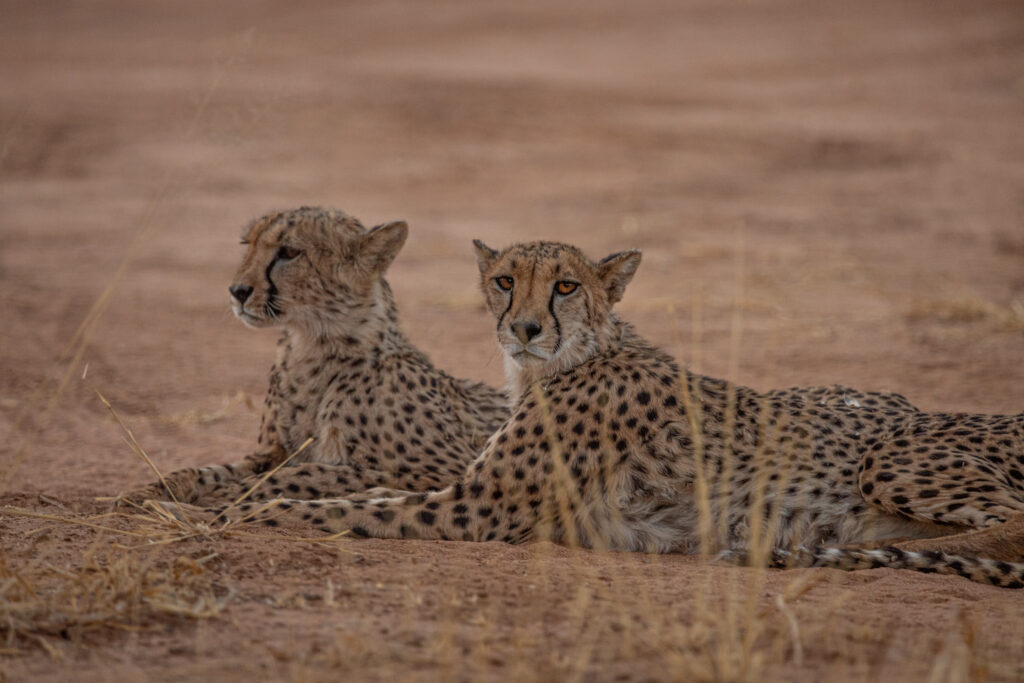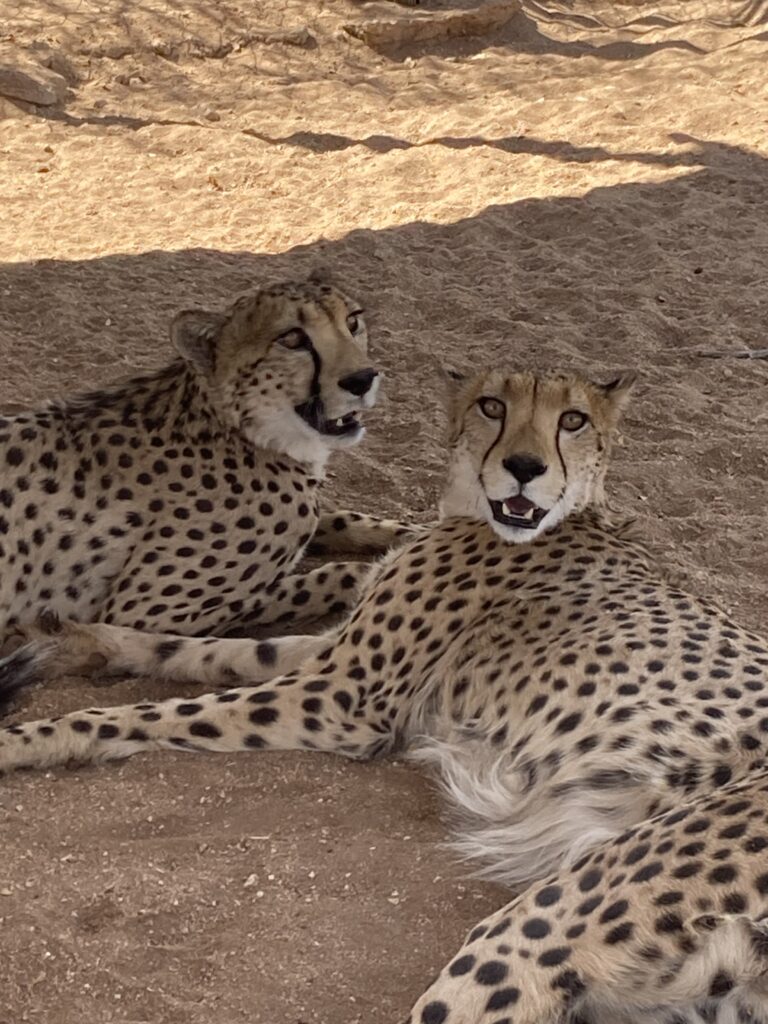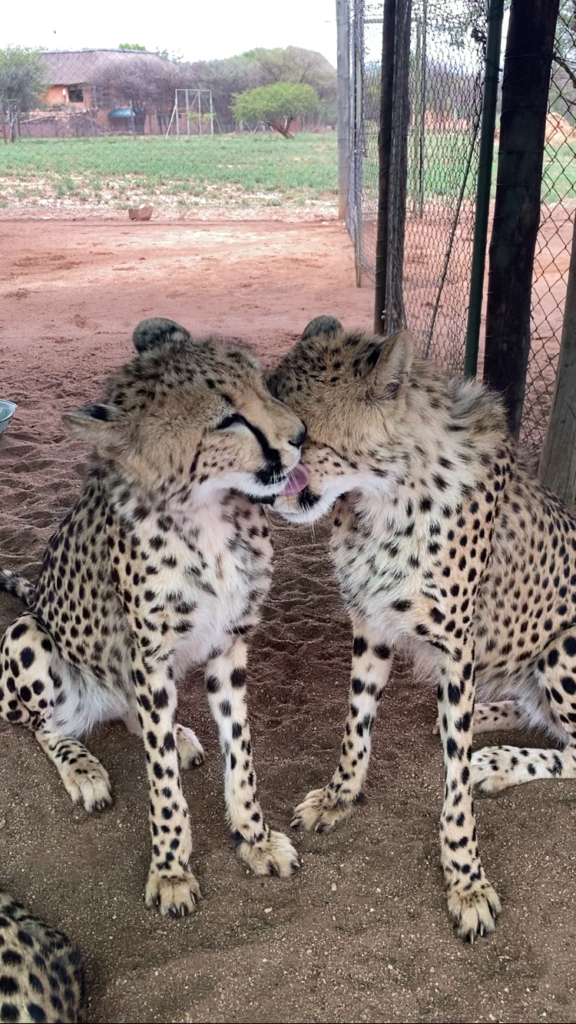Did behaviour change over time?
Over time, the feeding behaviour of Groups 1 and 2 became more “settled”, spending more time eating from the bowls in which the meat is given to them, and less time switching bowls and pieces of meat, and less time taking the meat out of bowls in order to move and eat elsewhere in the feeding pen.
As the cheetahs in Groups 1 and 2 became older and spent more time together, the frequency of social behaviour decreased. This includes dominating behaviour, which likely decreased as cheetahs matured and developed a more stable hierarchy within the group.

Is there a difference in the behaviour of adolescent and adult cheetahs?
Groups 3 & 4 follow a similar trend to the 2009/2011 dataset, where the younger, adolescent cheetahs were more social, including dominating, than the adult cheetahs that had spent longer together. Other studies have found that cheetahs introduced to each other at a younger age are more likely to interact positively with each other, as seen in Group 4. This was also seen to a lesser degree within Group 3, where two of the group members were introduced at younger ages and were seen lying together and allogrooming, while the third member of the group was introduced at an older age and showed little to no social interactions with the other two.


Does captivity change the frequency of behaviours in cheetahs?
Cheetahs in captivity are often kept in unnatural social groupings in small areas, and this forced proximity may change social behaviour due to the increased time spent together. Females are solitary in the wild, and other studies have also seen an increase in social behaviours in captive cheetahs compared to that seen in the wild.
The preference for eating in bowls versus taking the meat out of the bowl and eating directly from the ground is similar to wild feeding behaviour, as cheetahs are known for disliking dirty food – they cut through the abdomen of prey in order to create a bowl-like structure and eat from the inside out.
The general low level of play found in this study is consistent with wild cheetah behaviour, where play is rarely observed over the age of ten months.
Overall, the behaviours seen in this study were consistent with other studies and what was expected, with individual personalities and life histories influencing the frequency of some social and feeding behaviours.